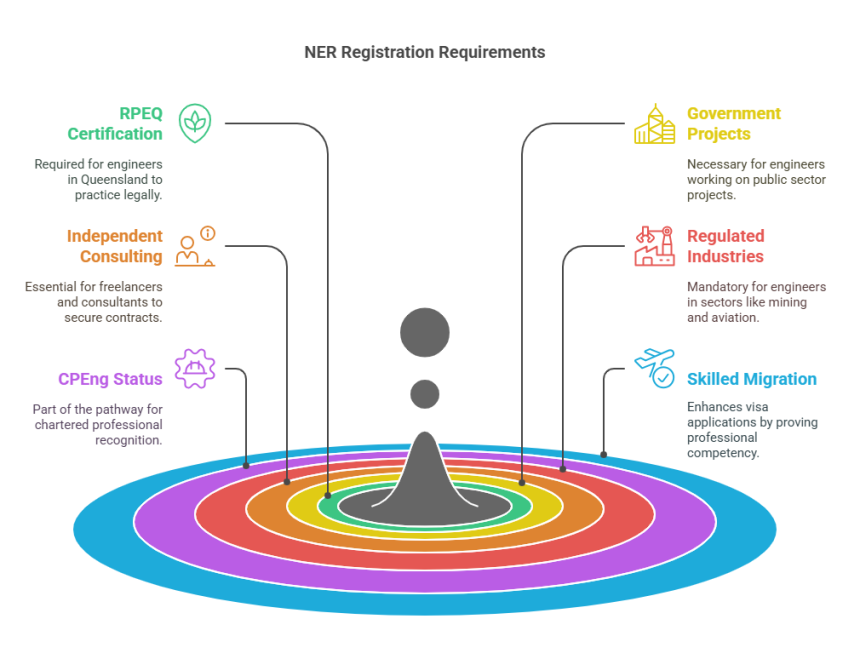
Is NER Certification Worth It for Australian Engineers?
NER (National Engineering Register) certification is a recognition offered by Engineers Australia. It confirms that: You’re a competent, experienced, and ethical engineer. You’ve met national professional standards. You are actively maintaining your skills through Continuing Professional Development (CPD). It’s publicly searchable, so employers, clients, and regulators can verify your credentials instantly. 🎯 Who Benefits Most from NER Certification? NER is most valuable if: You're working in infrastructure, construction, defence, or government sectors. You’re a consulting engineer or contractor bidding on public projects. You're aiming for Chartered status (CPEng) — NER is often the first step. You want to build credibility and trust with clients or employers. 📈 What Are the Key Benefits? 1. Professional Recognition NER instantly boosts your credibility — you're officially recognized as a qualified, ethical, and experienced engineer. 2. Required for Some Roles Certain tenders, especially from state or federal government, may require NER registration to submit bids or sign off on work. 3. Pathway to Chartered Status If you’re planning to get your CPEng (Chartered Professional Engineer) certification, NER is a natural first step. 4. Increased Employability Being listed shows you’re a serious, forward-thinking engineer. For employers, this can be a deciding factor in hiring or promoting. 5. Ethical & Legal Assurance NER engineers commit to a code of ethics and risk management practices, giving assurance to clients, regulators, and stakeholders. 💰 What Does It Cost? Fee Type Estimated Cost (AUD) Application Fee $110 - $150 (approx.) Annual Registration $90 - $130/year It’s not free — but compared to the value it brings over your career, it’s a reasonable investment. ⚠️ Considerations Before Applying Not all engineering jobs require NER. You’ll need at least 5 years of experience. You must demonstrate 150+ hours of CPD over the past 3 years. The process involves documentation and a professional interview. So, if you’re early in your career, you might not need it yet — but it’s something to work toward. 🤔 So, Is It Worth It? 👉 Yes, if you... Work in regulated sectors. Want to future-proof your career. Seek higher-level roles, independent work, or government projects. Want to enhance your professional identity and trust factor. 👉 Maybe Not (Yet), if you... Are still a graduate or junior engineer. Work in non-regulated industries (like startups or R&D labs). Don’t see a clear benefit in your current career stage. 📌 Final Verdict NER certification is absolutely worth it — if your career path involves: Leadership Consulting Public sector work Chartered accreditation Professional visibility It’s more than just a title — it’s your ticket to trust, tender eligibility, and long-term career elevation.




